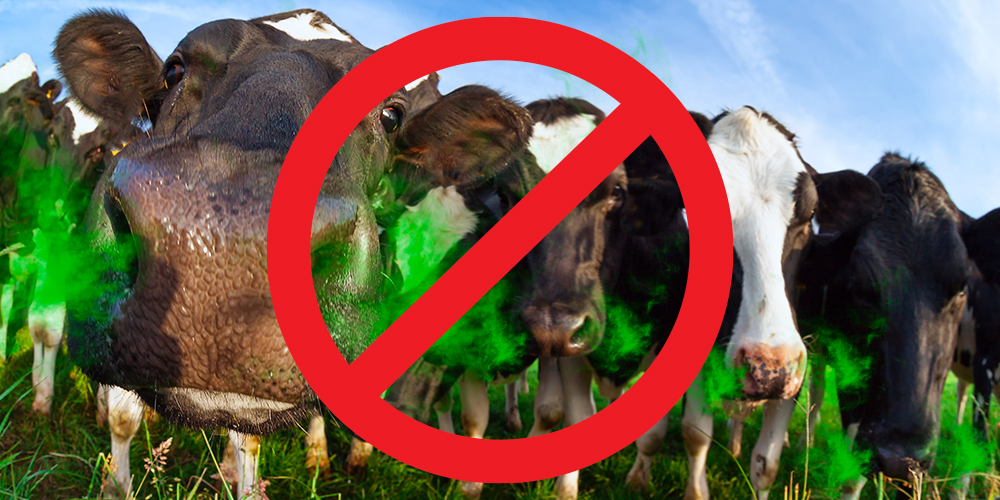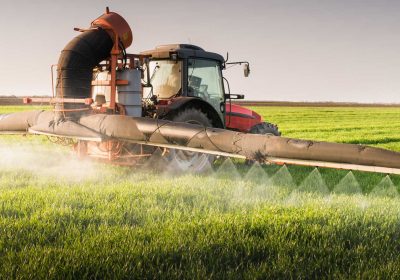Just as we’re learning how vital our gut microbiome is to our health, industrial agriculture wants to wreck the microbiomes of cows in the name of “climate action.” Enter Bovaer—a methane-reducing feed additive hailed as a quick fix for cattle emissions. But behind the glowing headlines lies a troubling story of corporate interests, ignored risks, and dangerous disruptions to natural systems.
Listen to the audio version of this article:
THE TOPLINE
- Bovaer, a feed additive by DSM Firmenich, reduces methane emissions in cattle by inhibiting gut microbes. However, it disrupts the natural balance in cows’ digestive systems, with unknown long-term consequences and short-term issues like reduced feed intake, fertility problems, and risks for farmers.
- This raises concerns about the impact of disrupted cow microbiomes on milk and meat quality, with no clear answers about potential harm to human health.
- Solutions such as seaweed supplements, probiotics, essential oils, and regenerative farming offer safer and more effective ways to reduce emissions without compromising animal health, food safety, or environmental balance.
What Is Bovaer?
Bovaer, developed by DSM Firmenich, uses a synthetic chemical called 3-nitrooxypropanol (3-NOP) to block methane production in cows. Methane, produced in the cow’s rumen by gut microbes called methanogens, is released mostly through belching. By inhibiting this process, Bovaer cuts methane emissions—30% in dairy cows and 45% in beef cattle, according to the manufacturer.
Sounds great, right? Think again.
Interfering with Nature’s Balance
Methane isn’t just “pollution.” It plays a critical role in maintaining the delicate balance of a cow’s gut. Methanogens prevent hydrogen buildup, allowing cows to digest tough plant materials efficiently. They also help stabilize pH in the rumen, ensuring a healthy environment for the microbes that support digestion.
What happens when you tamper with this balance? We don’t know, and that’s the point—no long-term studies have been done. Short-term data already raises red flags, including reduced feed intake, lower heart weight, and fertility issues in cows. The UK Food Standards Agency also noted skin irritation and eye damage risks for farmers handling Bovaer. And in one study, traces of a Bovaer metabolite even showed up in milk.
The Hidden Risks to Human Health
If Bovaer disrupts the microbiome of cows, what happens to the quality of milk and meat products? What about the potential impacts on humans who consume them? These are questions no one’s answering. While studies on rats raise concerns about carcinogenicity, fertility issues, and genotoxicity at higher doses, we’re supposed to believe small doses are “safe.”
We’ve seen this playbook before. Industrial agriculture rushes to implement a synthetic “solution,” and the long-term consequences—whether for health or the environment—are conveniently ignored until it’s too late.
The Corporate Agenda Behind Bovaer
Bovaer isn’t about saving the planet—it’s about corporate profits and control. The push to mandate methane-reducing technologies comes with billions in funding and carbon credits on the table, squeezing small farmers and rewarding industrial-scale agriculture. The Department of Agriculture has also made substantial funding available to support farmers using methane reduction methods such as Bovaer, making it very hard for smaller farmers to refuse to use such technologies in the long run.
Meanwhile, the real environmental problem—industrial feedlot farming—is ignored. Feedlot cattle fed on imported grain have a massive carbon footprint, yet they’re treated the same as grass-fed cattle raised on regenerative pastures.
Regenerative farming works with nature, not against it. Properly managed grasslands can sequester carbon, enhance soil health, and promote biodiversity, all while producing nutrient-dense food. But instead of supporting these solutions, regulators are handing our food system over to agrochemical giants pushing untested shortcuts like Bovaer.

Real Solutions, Not Toxic Shortcuts
Reducing methane emissions doesn’t require synthetic additives. Alternatives exist that don’t compromise animal health or our food safety:
- Seaweed supplements have shown an 80% methane reduction potential.
- Probiotics and natural plant-based solutions show promise in improving digestion and lowering emissions.
- Microbial Conversion: Bacterial strains have been found to convert methane into organic acids.
- Essential Oils and Antimicrobials: Emerging research suggests these may also reduce emissions.
- Regenerative farming addresses climate concerns holistically, restoring the environment while reducing emissions naturally.
The problem isn’t cows—it’s the industrialized farming systems that treat animals as machines. Bovaer is a band-aid solution that could create bigger problems down the line.
The Bottom Line
It is our view at ANH that a balanced approach—one that integrates innovative solutions that work with, rather than against nature, using sustainable and regenerative farming practices—may ultimately prove more effective and safer both for humans and the planet. Let’s reject toxic shortcuts and demand better—for cows, for farmers, and for all of us.
Please share this article widely in your networks.





it ain’t the cow farts we need/should worry about.
It’s the mis-guided kick backs thzt are kiling us!
People, stop paying your kids college tuitions to go and become a wacky climatologist, a woke social justice warrior, etc, etc. We as parents, if we get the bill, need to make sure our children are learning and grooming for a proper career in common sense based careers, not underwater basket weaving, preventing cow farts, etc. This is more woke technology that needs to get squashed in the next four years.